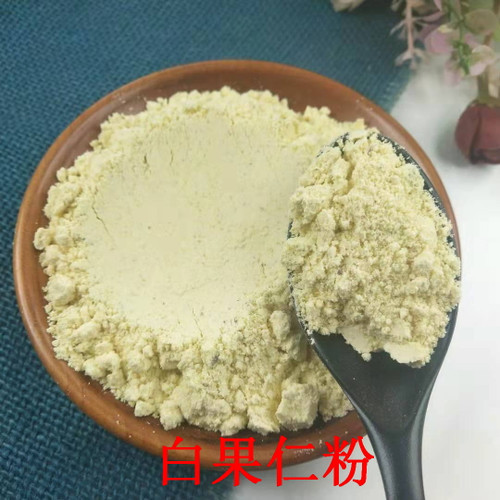Product Overview
Parts used: Dried ripe seed
TCM category: Herbs that invigorate the Blood
TCM nature: Neutral
TCM taste(s): BitterSweet
Meridian affinity: Heart Large intestine Liver
Scientific name: Prunus persica or Prunus davidiana
Use of peach kernels (Tao Ren) in TCM
Please note that you should never self-prescribe TCM ingredients. A TCM ingredient is almost never eaten on its own but as part of a formula containing several ingredients that act together. Please consult a professional TCM practitionner, they will be best able to guide you.
Preparation: Once ripe, the fruit is harvested and the flesh and outer shell are removed. The seeds are kept and dried.
Dosage: 5 - 10 grams
Main actions according to TCM*: Moves Blood and breaks up Stasis. Moistens the Intestines. Relieves coughing.
Primary conditions or symptoms for which peach kernels may be prescribed by TCM doctors*: Irregular menstruation Amenorrhea Dysmenorrhea Constipation Abdominal pain
Contraindications*: This herb should not be used by pregnant women.
Common TCM formulas in which peach kernels are used*:
For dysmenorrhea or amenorrhea combine peach kernels with dong quai (Dang Gui), safflowers (Hong Hua), motherwort herbs (Yi Mu Cao) and red peony roots (Chi Shao).
For moving and dispersing Blood Stagnation combine peach kernels with safflowers (Hong Hua).
For Blood Stagnation with symptoms of amenorrhea and dysmenorrhea combine peach kernels with mudan peony bark (Mu Dan Pi), cinnamon twigs (Gui Zhi), red peony roots (Chi Shao) and poria-cocos mushrooms (Fu Ling).
For intestinal abscesses combine peach kernels with rhubarb (Da Huang) and mudan peony bark (Mu Dan Pi).
For jaundice, hepatitis, cholecystitis and/or hypochondrial swelling combine peach kernels with woad leaves (Da Qing Ye) and safflowers (Hong Hua).
For irregular menstruation combine peach kernels with vaccaria seeds (Wang Bu Liu Xing), dong quai (Dang Gui), szechuan lovage roots (Chuan Xiong) and safflowers (Hong Hua).
Key TCM concepts behind peach kernels (Tao Ren)'s properties
In Traditional Chinese Medicine (TCM), peach kernels are plants that belong to the 'Herbs that invigorate the Blood' category. Like the name indicates these herbs tend to stimulate the Blood flow. In TCM they're used to help the circulation of Blood in cardiovascular conditions or menstrual irregularities as well as to treat acute pains caused by Blood Stagnation. They can also be used to treat Blood Stasis in the case of certain tumors, cysts and hardened clots.
Furthermore peach kernels are plants that are Neutral in nature. This means that peach kernels typically don't affect the balance in your body. Balance between Yin and Yang is a key health concept in TCM. Eating too many "Hot" (Yang) ingredients can lead to an imbalance whereby one has a Yang excess. The inverse is true as well: too many "Cold" (Yin) ingredients can lead to a Yin excess. The Neutral nature of peach kernels means that you don't have to worry about that!
Peach kernels also taste Bitter and Sweet. The so-called "five elements" theory in Chinese Medicine states that the taste of TCM ingredients is a key determinant of their action in the body. Bitter ingredients like peach kernels tend to have a cleansing action on the body by clearing heat, drying dampness and promoting elimination via urination or bowel movements. On the other hand Sweet ingredients tend to slow down acute reactions and detoxify the body. They also have a tonic effect because they replenish Qi and Blood.
The tastes of ingredients in TCM also determine what organs and meridians they target. As such peach kernels are thought to target the Heart, the Large intestine and the Liver. In addition to regulating blood flow, in TCM the Heart is believed to be the store of the "spirit" which basically refers to someone's vitality. The Large Intestine on the other hand receives the "impure" parts of the digested food from the Small Intestine, absorbs the remaining fluids and excrete the remainder as feces. The Liver is often referred as the body's "general" because it is in charge of regulating the movements of Qi and body fluids. It also takes a leading role in balancing our emotions.






